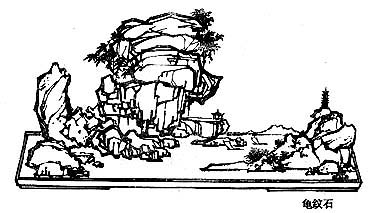Shi Jing 
 – Le Canon des Poèmes
– Le Canon des Poèmes
Le plus ancien recueil connu de poésie chinoise, plus de trois cents chansons, odes et hymnes. Tr. Legge (en) et Granet (fr, incomplète).
Shijing I. 10. (123)
Il est un sorbier solitaire
qui pousse à gauche du chemin !
Ô Seigneur, ô toi que voilà,
daigne t'en venir avec moi !
Toi, que du fond de mon cœur j'aime,
toi, ne veux-tu boire et manger ?
Il est un sorbier solitaire
qui pousse au tournant du chemin !
Ô Seigneur, ô toi que voilà,
daigne t'en venir promener !
Toi, que du fond de mon cœur j'aime,
toi, ne veux-tu boire et manger ?
Granet XXVI.
There is a solitary russet pear tree,
Growing on the left of the way.
That princely man there !
He might be willing to come to me.
In the centre of my heart I love him,
[But] how shall I supply him with drink and food ?
There is a solitary russet pear tree,
Growing where the way makes a compass.
That princely man there !
He might be willing to come and ramble [with me].
In the centre of my heart I love him,
[But] how shall I supply him with drink and food ?
Legge 123

Le Canon des Poèmes – Shi Jing I. 10. (123) – Chinois off/on – Français/English
Alias Shijing, Shi Jing, Book of Odes, Book of Songs, Classic of Odes, Classic of
Poetry, Livre des Odes, Canon des Poèmes.
Le Canon des Poèmes, Les Entretiens, La Grande Étude, Le Juste Milieu, Les Trois Caractères, Le Livre des Mutations, De la Voie et la Vertu, 300 poèmes Tang, L'Art de la guerre, Trente-six stratagèmes
Bienvenue, aide, notes, introduction, table.
Index – Contact – Haut de page
